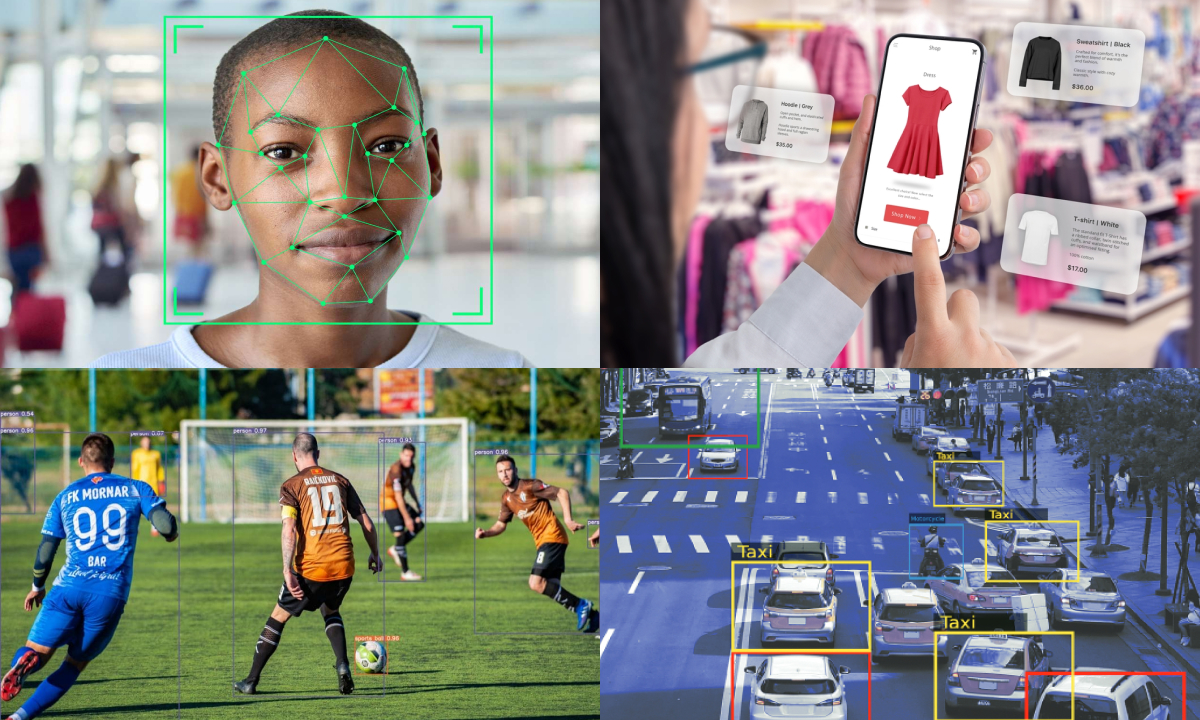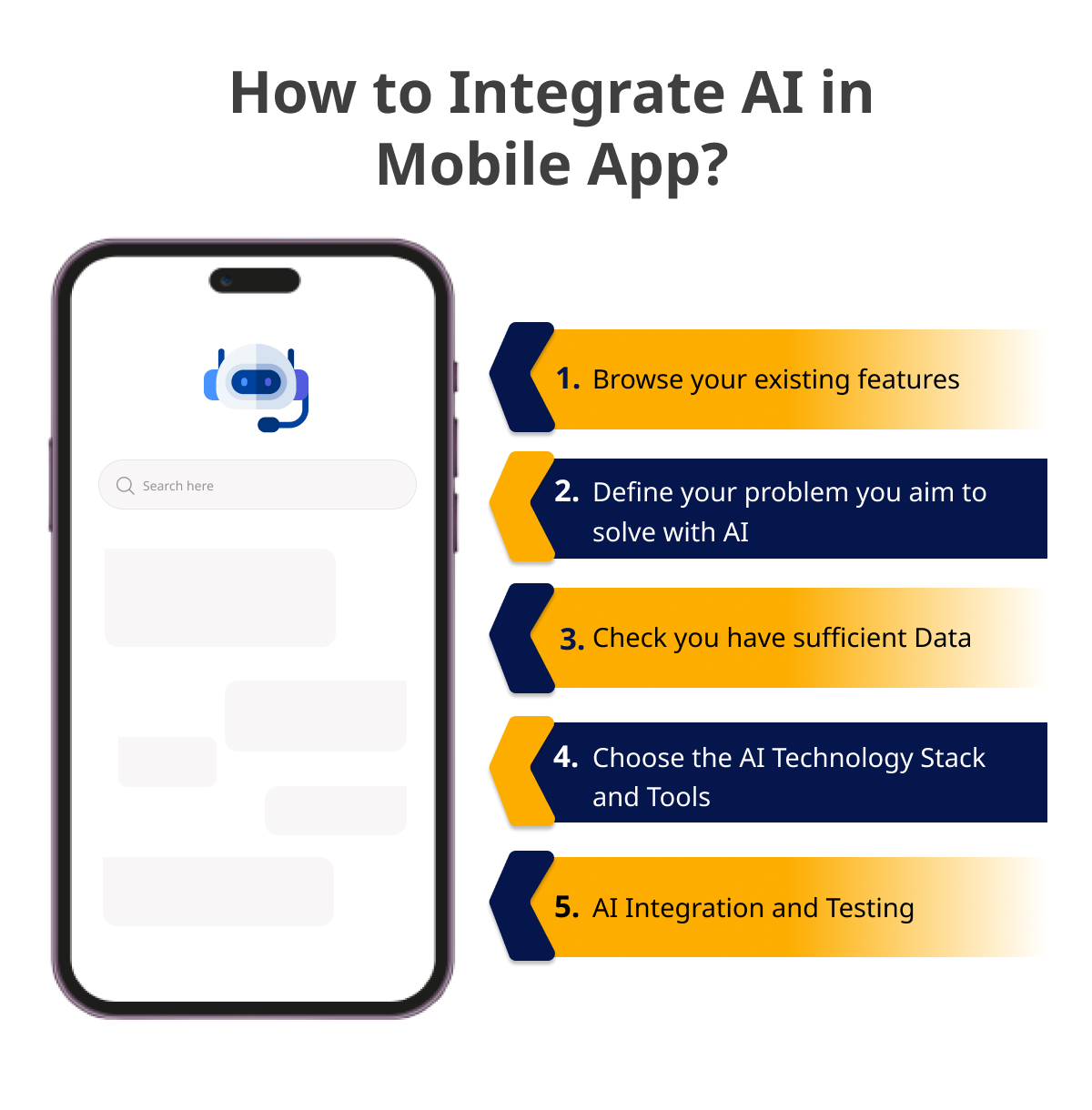2024 and the coming years are all about artificial intelligence. It isn’t merely a technological advancement, it’s a revolution reshaping mobile app development. AI-powered mobile apps are offering delightful experiences that are smarter and more personalized than ever before.
Understanding of AI-Powered Mobile Apps
Imagine giving your customers personalized services. Experience it as a consumer. What if you start seeing things as per your preference and style? Wouldn’t it be easy for you to navigate your project smoothly and save time? Customers connect when they find things relatable.
This isn’t a distant future thing, but it can be achievable, all thanks to artificial intelligence. Whether you are a startup, mid-size business owner, or enterprise launching a mobile application expecting it to bypass all the existing apps in your concerned business sector, you need to stand out. However, every business is integrating AI in Apps, but a new concept and more personalized approach towards the customers will aid you in achieving long-term goals.
AI in Mobile App Development
Machine Learning: ML is a significant approach to AI. It allows an app to learn and understand its user’s behavior, read data fed into it, and adapt over time. ML doesn’t require coding and gives predictions, helping analyze users’ data and helping businesses improve their service on a yearly basis.
Natural Learning Processing: NLP allows an application to read between the lines and comprehend human language in text or vocal form. It promotes smart, voice recognition and interactive chat services as well as language translators within applications helping improve interface and usability by customers.
Computer Vision: This AI tech is used with mobile apps to recognize and interpret videos and images. These features can be seen on the eCommerce apps where you add images and it shows images related to google lens.
Predictive Analytics: This AI feature in mobile apps incorporates predictive models that employ AI in decision-making; allowing apps to predict the user’s behavior, inclinations and tendencies. This capability makes it possible to offer personalized content and suggestions in real-time improving the user’s experience.
Fortunately, these AI technologies make it possible for developers and businesses to understand the advancement. Incorporating AI in mobile app development significantly improves the functionality of applications. This resulting in bridging the gap between the users and service providers.
What is AI Integration?
Artificial Intelligence in mobile apps will make your application smarter. It boosts your app’s productivity and gives a precise understanding of different user’s patterns. It works on API and ensures AI and other technologies incorporated in the application work nicely together.
Integrating AI in Mobile App Development will give you a significant reason to love it. It optimizes operations, makes user experiences top-notch, and keeps learning and adapting over time. This means your business can squeeze every bit of potential out of AI. Why? It is likely to drive innovation and efficiency like a pro.
Personalized Offer: Suppose you like an attire but don’t find it within your budget. What if an AI-integrated mobile application starts showing similar products in different budget categories? Isn’t it really helpful? This way, ML starts learning what your customer is exactly looking for. It straightforwardly cuts down time navigating products from the end-number of products, resulting in data about your customer behavior.
Also, AI suggests products depending on your body or style. You can integrate AI into an app in various fields, whether it's a fitness app, commercial application, or financial accounting.
Increased User Engagement and Retention: AI is one of the most powerful and smart tools of all time. It can adapt to users’ behavior and give personalized experiences. AI is 5 times faster at adapting users’ behavior than humans working on customer psychology.
Process Optimization and Automation: AI technology has optimized the process and automates the entire thing. From chatbot to content suggestion AI can enable efficiency in several aspects of the application. This not only makes the work status effective but allows people to spend more time on important tasks.
Image and Video Recognition: This feature of AI is the most brilliant among all features. AI recognizes people, scenes, moods, and objects in images and videos. It can be applied in a multitude of cases and applications, for example, using artificial intelligence in healthcare apps, helps you count calories, fat, carbs and other things by seeing the quantity and ingredients of the foods.
How to Integrate AI in Mobile App- A Pro Tip
If you have been planning to integrate AI in your app for quite a long time but nothing works for you, hire mobile app developers. An experienced team of professionals can effectively help you integrate artificial intelligence in your application and make your solution a smart-solution. AI mobile app development service works around your trigger concerns and provides you a solution that helps you save time and money.
Browse your existing features : Before you step into the integration, give your app time and understand which features need AI. Once you finalize, prioritize the features that could benefit from AI. This will give a clear idea to you and developers. You can also go for a new AI feature.
Define your problem you aim to solve with AI: Understand what you expect artificial intelligence to do. Integrating AI in apps just for the sake of it could be a major waste of time and resources. Clarity in the initial phase will seamlessly integrate AI. Do competitor analytics, see how their AI integration helps them.
Check you have sufficient Data: Mobile app development services are beneficial if integrated correctly. Make sure you have enough quality data to feed your users. AI need data to learn and perform. Therefore, you need to ascertain that your data is relevant and that you have as much meaningful data.
Choose the AI Technology Stack and Tools: choosing the best-fit AI tech stack and tools to build your application. It is always significant to know which programming languages are optimal. Are there AI platforms, libraries, frameworks or other existing solutions that can simplify your development process and free you from complex custom coding?
- In Natural Language Program (NLP) libraries there are some programming languages such as the Natural Language ToolKit (NLTK) in Python.
- AI frameworks, Google AUtoML, TensorFlow, and PyTorch are the most popular options.
- Platforms ready to make stuff for your AI app development, such as Amazon’s AWS machine learning models, Google’s platform with an AI hub and building blocks, or built-in AI capabilities and machine learning services of Microsoft Azure.
AI Integration and Testing: Test your app thoroughly in terms of performance. If it’s ready to go, the team moves on to integrating the created and trained AI into the system’s front-end or back-end, which is often done with the APIs. This is why it is common for teams to implement CI/CD pipelines, which make it simpler to maintain the apps and run tests. Developers also usually link up a feedback loop to allow users to help the AI system improve, often utilizing feedback collection tools to gather valuable insights. These tools can range from in-app surveys and rating systems to open-ended text fields and social media monitoring. By effectively collecting and analyzing user feedback, developers can identify areas for improvement and tailor the AI system to better meet user needs.
Conclusion
Artificial intelligence is paving the way for the world to be smart. AI is the future, and integrating AI in apps and web solutions will benefit your business. Thus, by selecting the AI Integration Services that focus on the user's and security aspects, you can develop a competitive edge.
If you want to integrate AI into your next application, you can contact an AI mobile app development company or hire a mobile app developer.

